[If you haven't already done so, please consider reading Chapter 1: Play Time, Chapter 2: Growing Pains, Chapter 3: The Course of True Love and Chapter 4: Time in a Bottle before proceeding with Chapter 5. However, reading the final chapter first could be considered somewhat appropriate, in this case.]
Hello, and welcome to the end of our tale. For reasons that should be apparent soon, an Omniscient Narrator is required from here on. So the universe blinked like Barbara Eden and your wish was granted, before you even knew you needed to make it. Consider this your guided tour of the end, and the beginning, and everything in between.
So. The universe, it turns out, operates under a few hard truths that aren't open for debate, no matter how much we might like to. It can be disconcerting, for example, to consider, that, viewed from the proper distance, every creature that has ever lived or will ever live is indistinguishable from the next. Certainly, close inspection will always reveal individual characteristics, but pull back far enough and... bang! they all start to look alike! Fred and Ethel: who can tell the difference? Man and mouse: two peas in a pod! Towering, mighty Redwood and sentient ectoplasmic cloud from Orion Three: identical twins, separated at birth! And those births lead inexorably to deaths, bookending a series of meaningless-from-a-distance events (Life, to those in the midst of one), every one of them the same, as viewed from the wrong end of the telescope.
And is it at all comforting to learn that, protestations to the contrary notwithstanding, there are no coincidences? Perhaps one doesn't immediately recoil at that thought, but does the notion of random chance imply free will, and if so, does the harsh confirmation that both are myths fill the mortal heart with dread? And if it did, would the universe care one bit?
But surely none of this unwanted didacticism interests you nearly as much as the plight of one Richard Dunfrey, yes? All this talk of birth/life/death and things happening for a reason hardly seems to apply to the matter at hand, you'd point out.
So what of Mr Dunfrey? Let us turn our collective gaze toward the sixty-three year old gentleman, sweeping floors and collecting trash at the Waterloo Science Institute, in the year 2029, as Richard and his contemporaries would refer to it. Four years earlier, Richard's money finally ran out. The accumulated retirement wealth of his parents, barely touched by them before first she, and then he, completed their cycle of birth/life/death, kept him well-supplied with alcohol and pain-killers and satellite TV, as well as a comfortable hole to crawl into, for nearly two decades. But then it was gone, and it was time for Richard to jump off a very high bridge, or get a job. It didn't take him long to figure out that returning to accountancy was no option, since the Tax Code stands still for no man, and eighteen years is a very long time to be out of the game.
And so Richard found his choices limited. With encouragement from sister Laurie, who'd long since given him up for dead but in the span of one long conversation late into the evening sensed a chance for his resurrection, our Mr Dunfrey walked into the Material Waste Office at WSI with head held high and walked out a recycled member of society. Was it his proud bearing that landed the job, or the referral he received from his brother-in-law? Irrelevant to Richard, and to our story.
Much more relevant is that, on this particular night, four years after rejoining the world of the living, Richard wasn't the only person inside the walls of the Science Institute. It's of course no coincidence that Richard was there, nor that Dr Peter Schuman was there, nor that Schuman and his co-workers were doing what they were doing. Only incomplete data would ever lead one to think it were.
"Hey, Dunfrey," Dr Schuman said, looking up from his computer screen and taking that opportunity to remove his glasses and rub his weary eyes. "How are you doing tonight?"
"Can't complain, Dr Schuman. You guys need to cut back on the coffee, though. There must've been a dozen mugs in the meeting room tonight. What's got you all so busy? Last night half the team was here when I made the rounds after eleven. Those are some crazy hours!"
Peter Schuman probably didn't feel the weight of his next words bearing down on him, but even if he had, it wouldn't have changed anything. It couldn't have.
"Well, I could lose my job telling you this, my friend, but by tomorrow morning it'll be all over the news anyway, so what could it hurt? Come on. I want to show you something that you'll tell your grandkids about."
Richard didn't think it appropriate to tell his companion that he had no children, let alone grandchildren, but simply smiled in response.
The two men left the offices and moved through several access-controlled doors to the facility's lab, which was beyond Richard Dunfrey's security clearance to enter, but not Peter Schuman's. Once inside the large room, filled with tables, shelves and computer monitors, the scientist lead the janitor to a glass-enclosed white chamber the size of a large phone booth.
"Do you have any idea what this is, Richard?"
"Well, I'm guessing it's not a tanning station, so no. No I don't."
"You're looking at the world's first, but most definitely not last, honest to God, certifiably authentic time machine!"
Richard fixed the other man with a stern look that softened quickly. "Hah! I guess I must look pretty dumb, for you to think I'd fall for that one, Doc!"
Schuman blushed, and looked away and then back again. "I'm terribly sorry, Richard. I didn't mean any offense. But I wasn't joking! That's a time machine, even if it's not much to look at."
Richard Dunfrey could only stare back. Somewhere in the deep recesses of his mind, a tiny voice began to scream just then, but he ignored it.
"We've been working on this for years, you see. We knew we were on the right path as far back as early '24, but it's taken us this long to work through the complex algorithms, build the right components and to come up with the right material to use."
"Material?" Richard's voice cracked as he spoke, and the noise inside his head began to grow.
"Yes! Yes! That's one of the most exciting discoveries we made, just recently! We've fashioned a new substance that was utterly critical to our success in this area. It's unlike anything that's existed before! For one thing it's extremely sensitive to the chronal energies we've harnessed."
Richard ran his right hand through his grey hair. "I... I'd like to see this new substance," he said, though he already knew what we was going to see.
"Oh, of course! It's all part of the tour, now, isn't it? Haha. Yes, just let me unlock the container," he said, and applied the thumb and forefinger to either side of a reader on a nearby table, causing the lid of a small box to whisper open hydraulically.
Richard closed his eyes because he didn't need to see to know what Dr Schuman would retrieve from the box. He didn't anticipate the scientist using a small set of forceps to handle the item, but he wasn't at all surprised to see what rested between the metal tongs.
"I've... seen that before," Richard said through gritted teeth.
"What's that? No, I'm afraid that's impossible, unless you've been in here snooping over the last few days! No, this was only finished last weekend, and quite the cause for celebration it was, too! Just look at it! Who's ever seen a shade of green quite like that before? We've dubbed it the Temporal Retainer because of its unique ability to absorb the energy involved with time itself! Extremely exciting stuff, eh? It's demonstrated other characteristics, too, that we've only begun to understand."
"I don't expect that you'll believe me. Hardly anyone ever did. It's hard to..."
But before Richard could say another word, a loud claxon began sounding, causing both men to reach to cover their ears.
Recovering first, Peter exclaimed "Oh my God!" with a look of sheer terror on his ashen face. "That's.. that's impossible! We can't have lost integrity!" He turned toward the time chamber as he spoke, dropping the forceps as he did so. "There's no way we could've built up another energy to break the... I must..."
Between the screeching voice only he could hear, and the alarm bell in the lab, Richard Dunfrey couldn't have formed a conscious thought to save his life, and yet still he reached down to the floor and picked up the green object he'd encountered several times before, and held it tightly in his fist.
As he did so, an inconceivable wave of time exploded outward from the small chamber before him. In a period of time so short that no human scientist had ever coined a unit small enough to describe it, everything in the universe recoiled from the violation it'd just experienced, ending all existence in a burst of whiteness that enfolded everything, from one end of the universe to the other and everything in between.
And this was the final secret of the universe revealed, spelled out in glorious detail for all to see, except that there were none to see it. And the secret was this: that every universe, like every creature in it, has a life cycle to be observed, if you could just gain the proper perspective to take it all in. They're all the same, these universes that come into being, exist for a few paltry billion or trillion Earth years, and then end. And they all begin the same way, and ultimately end the same way, no matter how much the microscopic details between the terminus points may change from one to the next. They all end, as we just laid witness to, when the inevitable finally occurs: some sentient race, somewhere within the vast expanse of the universe's boundaries, travelling along the path to enlightenment that leads to the wheel, or space travel, or unified mind collectives, or transmutation, stumbles blindly upon the ability to manipulate time. Always the same. Indistinguishable, in all but the basest considerations. Sometimes, a race perfects time travel first, and avail themselves of the opportunities it promises, only to learn how limited those opportunities actually are. Or perhaps a mistake is made right at the initial moment of discovery. It doesn't matter; the fact remains constant that time is easily broken by those who learn how to touch it, and sooner or later, at some point, it's mishandled, and time ends.
Only to start anew. Because that's as inevitable as the ending. The energy has to go somewhere, after all. And so a new universe is born instantly on the heels of its predecessor, and the cycle begins again. An endless series of Big Bangs and White Outs and Big Bangs and White Outs, laid back-to-back-to-back-to-back for all eternity. And the details that happen in between the bookends are always the same, identical in all ways except the details, which are after all only of interest to the fleeting inhabitants of each universe who live just long enough to see an infinitessimally thin slice of the show.
But of course no one survives to see the next act because of the destructive force involved in pressing the Reset button. All of the matter returns to its original shapeless form, in order to be dispersed anew each time. Some immeasurably small amount of that energy escapes each time, and so a select few of the universe'e creatures are born with just the slightest touch of awareness of the shape of time around them, and they become prophets and seers. To them, the nature of the universe is clearer, at least. They see time as it truly exists, an unchanging sequence of events that are pre-determined from the moment of creation. Most who are gifted in this way shy away from this knowledge because of the inherent implications about free will, and choice, and destiny. Entire religions form and flourish and die combatting such notions, while still playing off the knowledge of an inevitable ending to their own purposes.
For Lady Fatima, unfortunate enough to be born with this gift at a time when the end was only a few generations (a blink!) away, so desperately close as to be nearly within her own lifetime, it became harder with each year to convey truths from her use of second sight. By the end of her time, her only recourse was to sell lies of comfort and joy to those who she knew would barely outlive her, regardless of the fullness of Life they felt about themselves.
And so our story ends. As should be clear, though, the end of one story is always the beginning of another. So be of good cheer! One door closes, and another opens!
"But wait," you say! "What of the green object, the so-called Temporal Retainer, the emerald imp that bedevilled Richard Dunfrey again and again, coming and going like a shiftless friend?"
What indeed?
At the moment that Richard Dunfrey, and Peter Schuman, and everyone else on the planet Earth, and every other sentient creature in the universe, were all whisked from the stage, one thing survived, albeit in a most unconventional way.
The chronal energy released in that lab affected the Resonator in a manner that would've done its creators proud, had they only survived long enough to appreciate it. Because of its specific composition, two significant events occurred as the universe ended its dance. First, the object bonded at a molecular level with its surroundings, which happened to be one Richard Dunfrey, more specifically a cell or two of his tightly clenched fist. This was one of the characteristics the object's creators had just began to explore, and something that would've been immeasurably helpful in its planned trips through time, once living creatures had ventured with it. Would have, could have, but never did.
Secondly and simultaneous with that wonderous development, the object's sensitivity to things temporal resulted in it being thrown through time, in the only direction it could move, given the dead end that the future then represented. Like a rock thrown across a pond, this unthinking thing skipped out across time, on its inevitable trip to points gone by. Each time it dipped back into the timestream, still moving backwards but in normal time, it found its way to its home base, as it were, in the person of Richard Dunfrey, wherever he happened to be. As it did so, it released some portion of the energy with which it had been thrown, so to speak, imbuing its host with glimpses of times it had passed in its reverse path to him.
So a drunken forty-one year old Dunfrey briefly observed the object of his anger, blinking into and out of existence while he crawled ever deeper into a bottle. For the time traveller, the past was where it had come from, and so Richard saw the white glare of existence ending. This vision was correctly interpreted by the slumped Dunfrey as his own death, but he failed to appreciate the grander scope of what he'd seen. For all that it mattered.
Flying back and back again, the object next reappeared sixteen years earlier. It flew up into Richard's outstretched hand on that bridge, and imparted the second vision to its host: that of Kate's eventual involvement with another man, undoubtedly because of her physical contact with him as they stood there. It then remained in the twenty-five year old's pocket while he and Kate walked backwards to Kate's apartment, where Richard carefully placed the green anomaly into a cupboard in the kitchen. All this was accomplished before moving on again.
Each hop shorter than the one before it, the object next appeared in the Grade 9 Dunfrey's backpack which was then removed from the locker and placed on his back, just as Richard was shown a vision of impending doom for his school mates. He carried the object around with him for several hours afterwards, moving like a film in Rewind mode, backing into this classroom and that one, before finally placing it in Paul McClusky's locker and closing the door, after which it lost contact with its host again and vanished back out of the timestream one final time.
And then, a mere 5 years later (or earlier, from Richie's point of view), running out of temporal energy, it performed its final dive back into normal time, arriving under its host's pillow, where it expended its last reserve of time-travelling juice unwittingly granting the nine year old a prophetic dream of the near past (or immiment future, depending on your perspective) in which he received the brunt of his mother's temper. Depleted of all temporal energy, it could do nothing then but take part in Richie's games, in which superheroes placed imaginary bombs in dangerous places and then flew away backwards to confer on their scheme. Eventually Richie tired of this inverted playtime and wandered out of the house, moving backwards to a point in the woods where he dug a shallow hole for his toy and placed it in the cavity. Richie then proceeded to cover it up until only a small rounded portion was left exposed, before wandering away forever.
From that point on, things got considerably more boring as the Resonator moved very little, except as continents shifted and the planet formed over the next few million years while time continued to unwind relentlessly. Eventually this billion year old item, no longer recognizable and yet still itself, found its molecules, along with the tiny molecular structure of Richard Dunfrey that it had bonded with, present at the birth of its universe, where it could finally die. And thus Richard Dunfrey, in a fashion that no human mind could've accepted and yet Lady Fatima somehow knew, managed to be present at both the end and the beginning of existence. And of course all of this, as time moved in both directions (or not at all, if the truth be known), happened because it always happened and always would happen, every detail pre-ordained and every creature on a path whose grip no force could break, lest it break everything.
Or so the story goes, at any rate.
Subscribe to:
Post Comments (Atom)

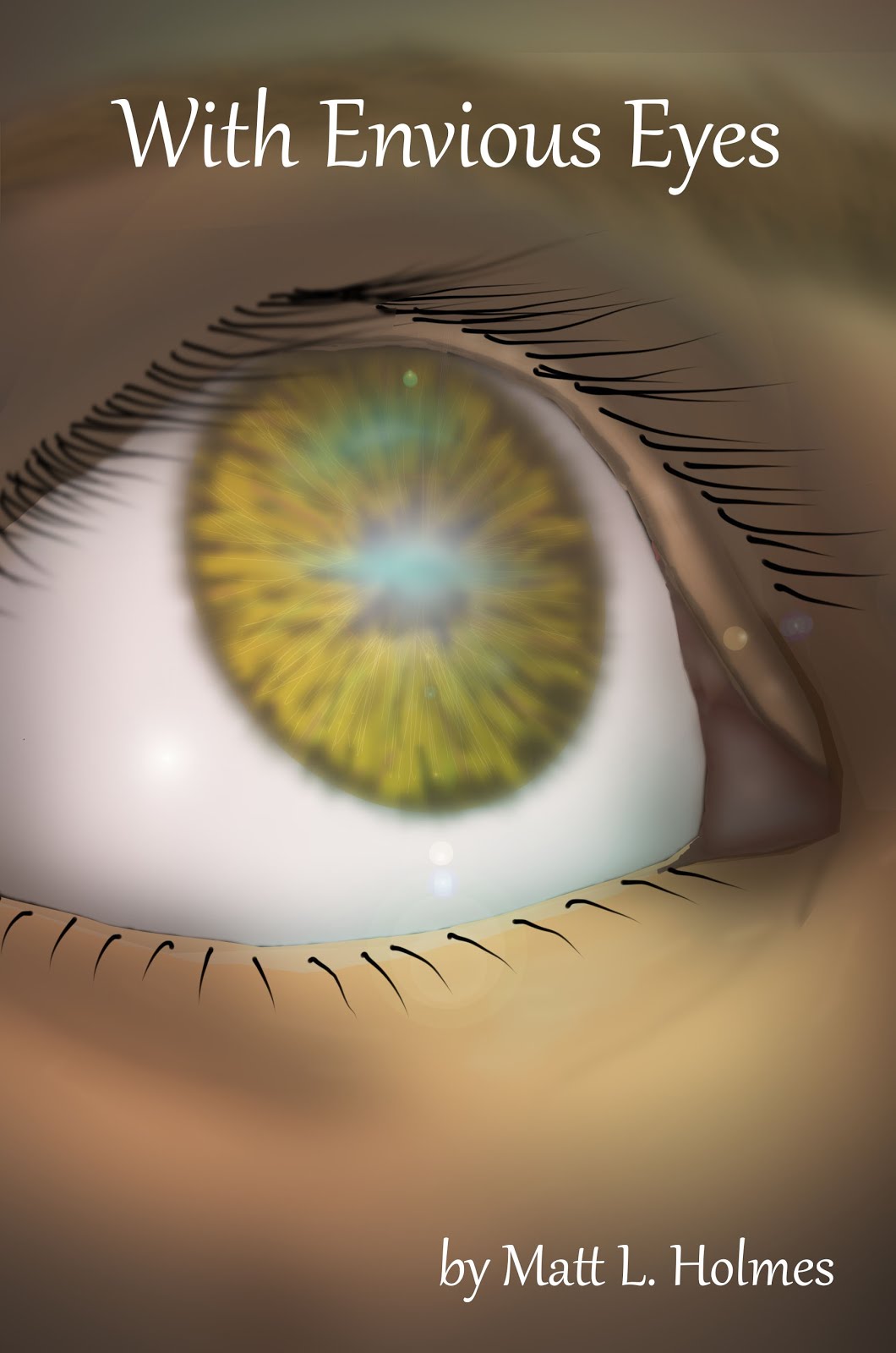


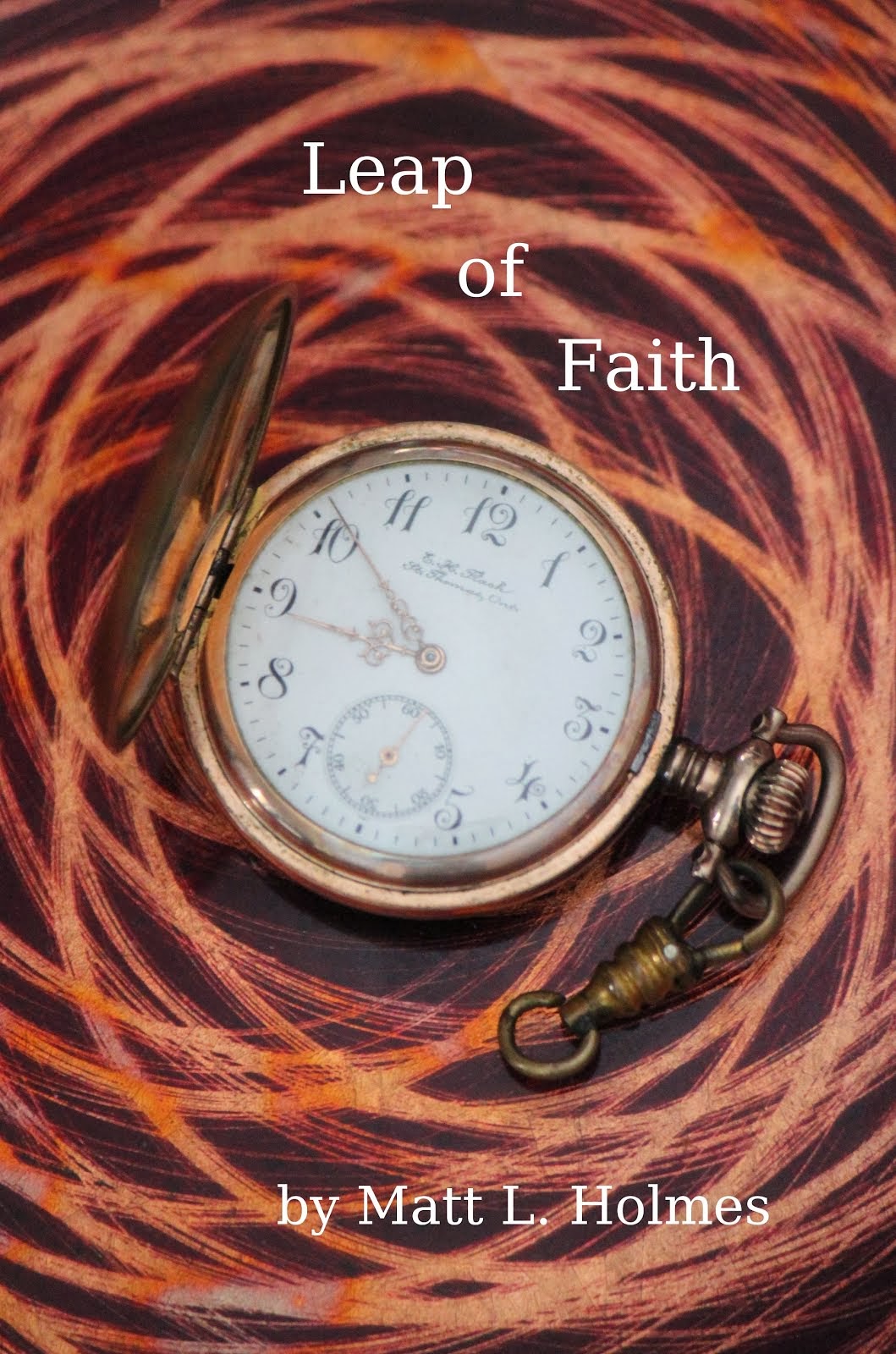
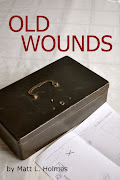

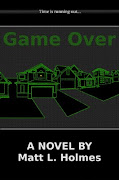
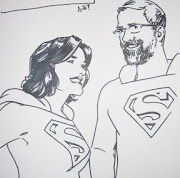






4 comments:
Interesting conclusion to your story. That was fun. You love time travel!
I should have guessed that the story involved time travel. It's one 'scientific' way to grant 'visions' of the future. Also, I know you like time travel stories when they are done well.
This was consistent throughout and therefore, I think well done.
Nice work!
I think it might be publishable! Let's package it up and send it off.
Let's not, and say we did!!!
Post a Comment